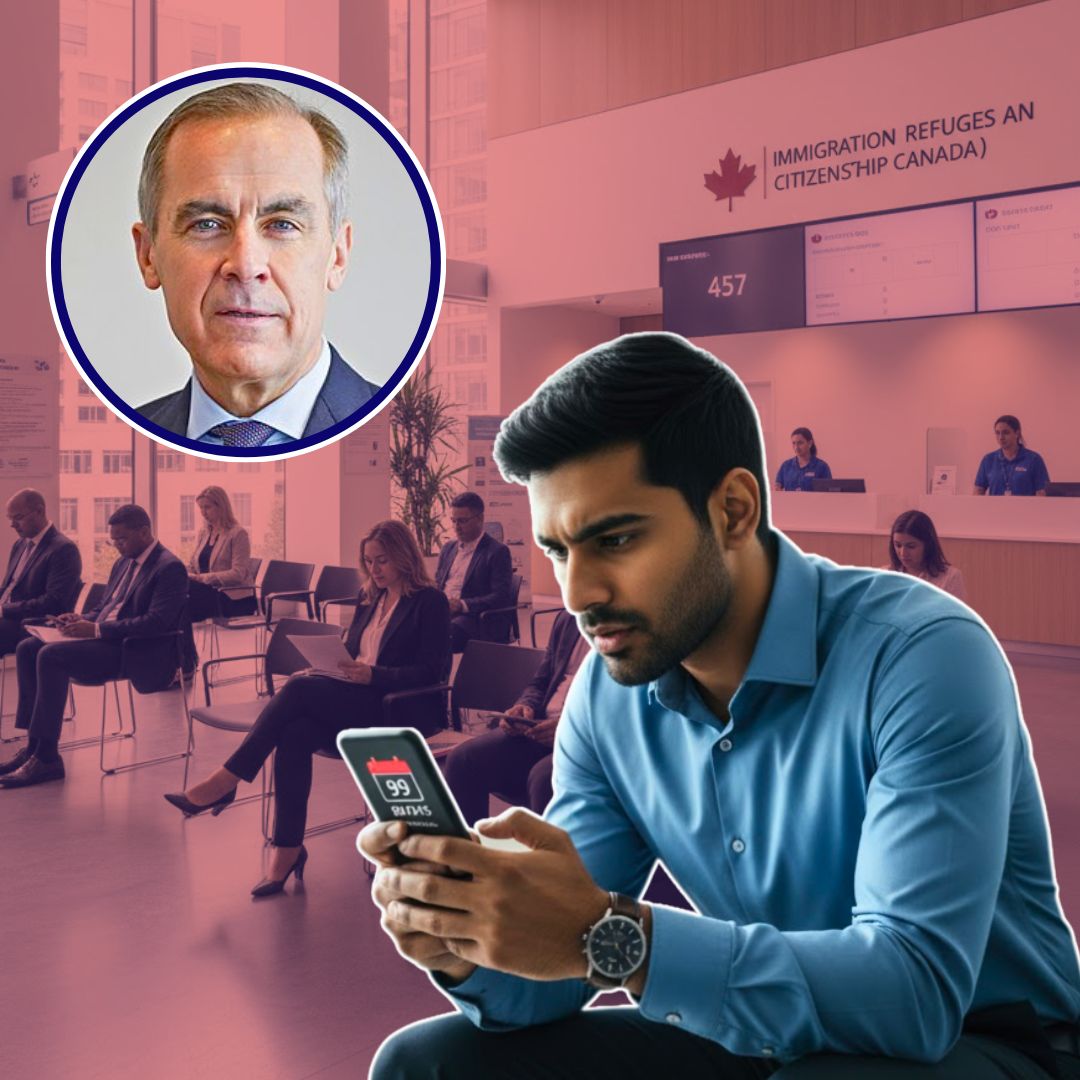Indian nationals applying for Canadian visitor visas are experiencing some of the longest processing delays among major source countries, with wait times averaging 99 days as of late 2025.
Even more pronounced are the wait periods for Super Visas, intended mainly for parents and grandparents of Canadian permanent residents, which have stretched to an average of 169 days.
These delays have heightened concerns among prospective visitors, families, and immigration professionals alike, who are calling for greater transparency, better processing efficiency, and consideration of human factors.
The following is a detailed overview of the issue, including key statistics, challenges, official responses, and context around evolving immigration policies.
Growing Wait Times and Impact on Applicants
Data released by Immigration, Refugees and Citizenship Canada (IRCC) places Indian applicants at the top of the list for the longest visa processing times in the visitor category.
From the moment applicants submit their biometrics at Visa Application Centres-commonly operated through partners like VFS Global-the average wait to receive a decision currently stands at 99 days. For Super Visa applicants, the wait extends nearly twice as long, averaging 169 days.
Such prolonged processing impacts individuals planning short visits for tourism, family reunions, or emergencies. Visa consultants warn that delays cause significant personal distress and disrupt travel plans.
According to an immigration expert, “Indian families are increasingly anxious due to these long waits, especially parents and grandparents applying under the Super Visa program who wish to visit their loved ones in Canada.”
IRCC officials acknowledge these delays and have expressed ongoing efforts to “modernise systems and pilot expedited processing initiatives” aiming to reduce backlogs and improve applicant experience.
Key Factors Behind Processing Delays
Several interconnected factors have contributed to the prolonged visa processing times. The COVID-19 pandemic disrupted global immigration workflows, creating extensive backlogs as travel restrictions froze international movement.
While operations have gradually resumed, the influx of applications from populous countries such as India has led to sustained pressure on IRCC resources.
Application processing speed varies depending on whether applicants submit online or paper-based applications. Online applications generally process faster, typically averaging around 50 to 55 days in certain cases, whereas paper-based applications can extend beyond 60 days. However, even these estimates have been challenged by the surge in application volume.
Furthermore, seasonal travel peaks-particularly around holidays like Christmas and New Year-see increased demand that stretches IRCC capacity.
Security checks and documentation completeness also influence processing durations. Incomplete applications or insufficient supporting documents can delay decisions considerably.
The Canadian government introduced mandatory biometrics for all visitor visa applicants from India, beginning the processing only after biometric submission, which ensures identity verification but adds an additional procedural step.
To address these issues, IRCC has launched pilot programs offering expedited processing for applicants meeting specific urgent criteria, such as business emergencies or family reunions requiring fast turnaround. Nonetheless, these remain limited to a subset of cases and have not fully alleviated general wait times.
Broader Context and Policy Developments
The longer wait times must be viewed within the broader context of Canada’s evolving immigration agenda, which aims to balance security, efficiency, and humanitarian concerns.
Canada seeks to streamline its visa issuance to maintain its status as a welcoming destination, especially for South Asian travellers who constitute a significant portion of visitor visa volume.
However, the pace of systemic reform faces challenges. The country’s immigration infrastructure is adapting to modern technology and scaling considerations, which involves transitioning from paper to digital systems, implementing biometrics, and enhancing security screening. These changes promise more secure and transparent processes but bring transitional delays.
In addition, the Canadian government increased visa fees by 5% in 2024, which raised concerns about accessibility for middle-class applicants.
Advocates suggest a thorough review of fee structures and visa procedures to better accommodate applicants who travel for genuine short-term visits or family reasons.
Seasonal and procedural variations also require travellers to plan their applications well in advance to avoid peak periods that can lead to longer wait times.
Experts recommend applying online, ensuring accurate and complete submissions, scheduling biometric appointments promptly, and considering available expedited service options where eligible.
The Logical Indian’s Perspective
The substantial visa processing delays highlight the delicate balance between regulatory requirements and human connections. While national immigration policies rightly uphold security and thorough vetting, they must also reflect empathy and respect for the social and familial bonds disrupted by lengthy waits.
The Logical Indian advocates for immigration processes rooted in kindness, transparency, and efficiency-qualities that strengthen ties across communities and uphold dignity in cross-border interactions.
We urge governments to prioritise reforms that simplify procedures without sacrificing integrity, harness technology to serve applicants better, and communicate clearly to reduce uncertainty and anxiety.
By fostering policies that embrace both security concerns and humane values, we can nurture stronger multicultural relations and ease the burden on families and visitors awaiting reunions.












